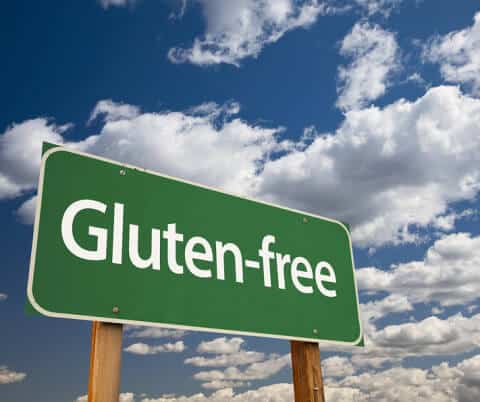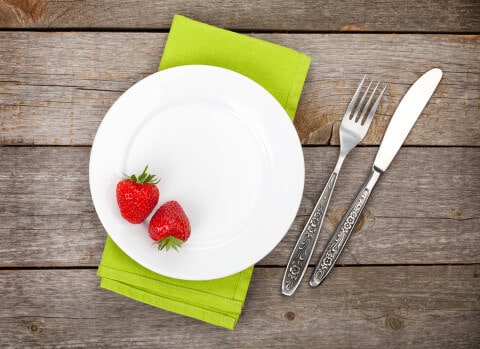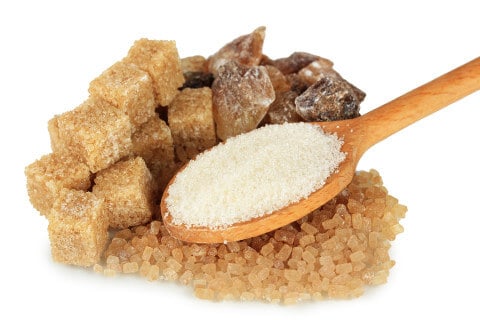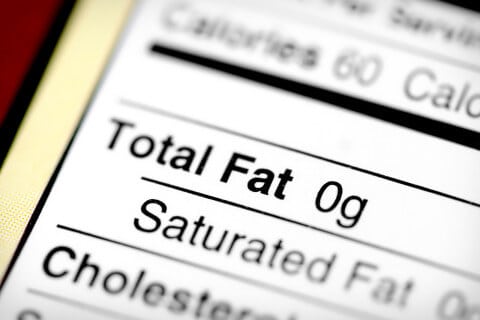Every week there seems to be a new nutrition topic covered in the media; new fads, new solutions for weight loss, and new foods that are “bad” for you. Many of the claims are often discredited, upon further research, yet their impact on dietary choices remains.
That is the case with several of the long-standing nutrition lies examined below. Studies from the 1950s and 1960s changed the way we ate, the foods we ate, and the amount we ate. All of this has had a detrimental effect on our health.
Nutrition lies in the media are common; studies subsidized by pharmaceutical companies, food manufacturers, and food associations are often tilted to make the public believe that one food is healthier than another to spur sales and increase visibility.
That is why I wanted to take this opportunity to give you the facts, based on true medical research, to debunk common nutrition misconceptions. Here is what I consider the top 11 largest nutrition lies circulating today.
11 Nutrition Lies In the Media
LIE #1. You Must Eat Whole Grains
When low-fat diets (discussed more below) became all the rage, an increase of whole grains was supported. According to the USDA, as of 2000, Americans were consuming nearly 200 pounds of grain per year, up 45% in 30 years.
In fact, the amount of wheat flour, corn products, and rice has all dramatically increased) All in the same time frame that autoimmune diseases, Type 2 diabetes, cancers, and cardiovascular disease rates have increased. But, we have been told for decades to eat more whole grains, right? Yes, we have, and this is why it makes my list for largest nutrition lies.
TRUTH: Whole grains are not nutrient dense, and actually can harm your metabolism.
The gluten, found in most grains, causes inflammation in the body, which leads to many chronic diseases and conditions including allergies, arthritis, cognitive decline, Celiac, Crohn’s, Fibromyalgia, GERD, Guillain-Barre, Lupus, certain types of cancer, and so many more.
The naturally occurring starches in whole grains cause surges in insulin levels because they are quickly turned into sugar during digestion. This fluctuation in insulin levels can be detrimental for individuals with diabetes, but also cause those without diabetes to experience dramatic swings in energy and concentration.
There have been countless nutrition and diet lies in the media over the decades. In addition, fluctuating blood glucose levels are associated with obesity and even infertility as the spike of insulin in the body affects other hormonal balances leading to metabolic diseases.
But what about the nutrition of whole grains?
Well actually the phytic acid in whole grains binds to essential minerals in the intestine, and actually keeps them from properly absorbing in your system. This can result osteoporosis as minerals affected include calcium, zinc, copper, magnesium which is good for sleep, and iron.
Calcium supplements don’t typically help with those eating a diet rich in phytic acid, because the calcium is still being blocked from being absorbed.
Phytic acid is found in the outer covering (or bran) of whole grains, seeds, and nuts.
Sprouting the grains helps to break phytic acid down, and makes it easier to digest. This process also helps to increase the rate of absorption of key nutrients.
What about fiber?
There are so many better solutions for fiber than whole grains, many of the best sources are actually vegetables!
As you look at your daily plate it so important to make sure that you are getting lots of fiber-rich vegetables that not only have the fiber but are loaded with antioxidants!
SOLUTION: Eat Sprouted Grains & Healthy Fiber Rich Foods
As you can see, whole grains really are not that good for you. Fortunately, there is a host of great tasting, and nutrient dense foods that are easily substituted into your diet. Remember, not all carbohydrates are bad, in fact we need them in our diet.
Lentils, kidney beans, chickpeas, artichokes, avocados, eggplant, berries, melons, and quinoa are all nutrient dense, and support healthy metabolic function and replace the fiber in whole grains.
And remember, if you want to occasionally indulge in whole grains, choose sprouted or fermented grains so you can absorb all the nutrition they contain.

LIE #2: Vegetarian Diets are the Healthiest
While vegetables certainly are very good for you, the truth is most vegetarian diets focus on large portions of whole grains, cereals, & not as many fruits and vegetables. Plus, it tends to be a diet rich in carbohydrates, and relatively low in protein and healthy saturated fats.
TRUTH: Vegetarians Can Struggle with Vitamin B-12 Deficiency & Be Missing Key Nutrition for Health!
Vegetarians that eat dairy or other animal products may get some Vitamin B-12 in their diet, but not enough. Their diet is also lacking the much needed healthy fats and minerals from the bones and meats of animals, that can help cell function and brain function.
And vegans, who do not eat any animal products, are even more prone to Vitamin B12 deficiency, at an alarming rate. In fact, some studies show that over 90% of vegans are deficient in this essential nutrient.
Only animal-based proteins contain the essential amino acids and B-12 necessary to thrive. These nutrients are associated with bone health, muscle mass, healthy hormonal levels (including testosterone), cognitive function, emotional stability, hypothyroidism, and fatigue.
Symptoms of a B-12 deficiency read like a case study in today’s average American wellness: low energy, infertility, depression, poor memory, digestive issues, leaky gut, autoimmune diseases, cardiovascular disease, cancer, and dementia.
According to a recent study from researchers at Alexianer Krefeld GmbH in Germany, Vitamin B-12 deficiency increases with age, and this can contribute to the developing of dementia. Fortunately, researchers of this study believe that the most symptoms of the deficiency can be reversed, if caught early.
Another problem with a typical vegetarian or vegan diet, is the high percentage of soy consumed. Phytoestrogens in soy mimics estrogen, and high levels have been associated with the increased risk in certain types of cancer.
Endocrine disruptors, such as chemicals, preservatives or high phytoestrogen foods (such as those in soy and soy products) throws hormones out of balance and potentially leads to endometriosis, infertility, cancer of the breast, prostate, and ovaries, as wells as Type 2 diabetes, Alzheimer’s, depression, and osteoporosis. Soy is not your friend, and the fact that it is considered healthy in many circles, is another nutrition lie.
SOLUTION: Add Responsible Sources of Meat, Fish and Grass-Fed or Fermented Dairy to Your Diet
My Healing Foods Diet is rich with a balance of healthy proteins, vegetables, fruits, nuts, seeds, and healthy fats. A central part of the diet is organic, grass-fed beef, lamb, bison, and free-range poultry.
This diet helps to decrease inflammation, alkalizes the body to make it less hospitable to some types of cancer, stabilizes blood glucose levels, eliminates toxins in the body, and provides an optimum balance of nutrients.
If you are vegetarian, and if you can, I recommend having some animal products such as ghee, butter, fermented kefir, eggs, and include as many sources of Vitamin B as possible.
LIE #3: Saturated Fat is Bad
Over 50 years, saturated fat was demonized by one study and health professionals across the world jumped onto the bandwagon to do away with saturated fat. This is quite possibly the most disturbing nutrition lie in the media. The result, a diet richer in carbohydrates and grains, and the introduction of unhealthy fats.
However, today a reanalysis of the original study found the study excluded data from 16 countries, because the data did not fit with the researchers hypothesis. A study published in The American Journal of Clinical Nutrition evaluated 21 medical studies to determine if a reduction in saturated fat improved cardiovascular health.
The study included nearly 350,000 subjects. The result? There is no evidence that saturated fat is associated with increased risk of cardiovascular disease, or coronary heart disease.
TRUTH: Saturated Fats are Good for You! And Critical to your Body’s Function!
Hydrogenated and partially hydrogenated oils have replaced saturated oils in the standard Western diet. The rise in popularity of these oils is directly related to the low-fat diet craze, but also the dramatic increase in heart disease, obesity, and Type 2 diabetes we see now.
Vegetable oils including corn, peanut, soybean or canola oil should be avoided, and replaced with healthy oils including coconut oil, ghee, sesame oil, grass-fed butter, and olive oil.
Colorectal cancer is often associated with diets high in saturated fats. However, that is simply not true. The Women’s Health Initiative Dietary Modification Trial studied postmenopausal women for more than 8 years, and found that a low-fat diet did not reduce the risk for colorectal cancer.
In addition, a study of nearly 50,000 postmenopausal women found that a low-fat diet did not result in a significant reduction in breast cancer risk.
SOLUTION: Incorporate Healthy Saturated Fats Into Your Diet
Coconut Oil is one of the healthiest foods on the planet. This extremely versatile once vilified oil is a medium-chain fatty acid that is easily digested, and packed with anti-microbial properties, including lauric acid. Unlike other healthy fats, coconut oil is resistant to heat damage.
Ghee is another healthy fat with a high smoke point, and packed with fat soluble vitamins A, D and E. Both ghee and coconut oil are actually associated with weight loss, as the energy from medium-chain fatty acids help to burn other fats in our system.
For raw applications, use olive oil, almond oil, or avocado oil. They are all terrific for adding nutrients, and great flavor.

LIE #4: Running is Healthy
The running craze started in the 1970s, around the same time as low-fat diets.
The problem is that running causes wear and tear on the bones, muscles, and can even damage the hormonal system. Intense and prolonged exercise actually releases free radicals into the body that contribute to plaque buildup in the arteries and oxidative stress.
This is according to Dr. James O’Keefe, the Director of Preventative Cardiology at Saint Luke’s Mid-American Heart Institute. High-intensity interval training improves fitness, without taking the long-term toll on muscular, skeletal and other systems in the body.
Another recent study indicates that people who get either no exercise or high-mileage runners both tend to have shorter lifespans than moderate runners. 70% of the runners in the study reported running more than 20 miles per week.
TRUTH: Everything in Moderation, and Exercise is Better in Bursts!
You’ve heard the saying everything in moderation, including moderation and this seems to be the case with running. If you enjoy running, do so at a lower intensity, at a lower pace, and for shorter period of times. If you decide to run, just keep it to jogging 2-3 times per week, at a slow pace for up to a maximum of 2-3 hours total.
Over-exercising can lead to serious health consequences, so exercise smart! Running great distances, at great intensity is not healthy, and one of the largest nutrition lies supported today.
SOLUTION: Replace Running with HIGH-INTENSITY INTERVAL TRAINING
Exercise is still a vital part of staving of disease, reducing stress, and maintaining a healthy weight. High Intensity Interval Training, or burst training, is a combination of short, high intensity bursts of exercise partnered with slow periods to allow the body to recover.
Burst Training is associated with greater fat burning, and it actually encourages your body to continue burning fat up to 48 hours after exercise is complete! If you love to run because you love to be outdoors, take up tennis, ski, walk or hike. The important thing during exercise is to listen to your body, stay hydrated, and allow your body to recover.
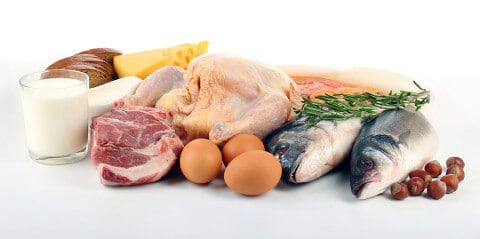
LIE #5: Too Much Protein is Hard on Kidneys and Liver
This nutrition lie seems to be a result of the high-protein diets popular a couple of decades ago. The myth is that high levels of protein in the diet contribute to decreased kidney and liver function, as well as osteoporosis. These claims are simply not true.
While there is incidental evidence that individuals with kidney or liver disease may need to curb their protein intake, even researchers studying kidney disease state “The long-term effects of animal protein on normal kidney function are not known”.
TRUTH: Proteins are Critical for Hormone Building, Cells and Bone Health
The truth is that protein contributes to every living cell and process in our body. Essential amino acids found in high-quality protein are associated with improved bone health, and a lower risk of fracture. The protein actually helps bone metabolism and improves calcium retention, and it is potentially dangerous to consume inadequate protein.
The senior population that is at an increased risk for osteoporosis, falls, and broken bones are particularly in need of high-quality animal protein. A study published in the Journal of Bone and Mineral Research indicates that animal protein does not adversely affect the skeletal system, as some have reported.
In fact, they found out that protein is essential in helping the body repair, and vital to preventing fatty buildup and damage to the liver.
SOLUTION: Add Healthy Proteins into Your Diet
Adding in a healthy range of proteins into your diet is the key to health!
Wild Salmon is rich with Omega–3, vitamins D, B3, B5, B6, and B12, protein, and potassium. This nutrient-dense fish contributes to healthy bones and joints, supports healthy neurological function, improves heart health, and much more. Also try sardines, anchovies, and other wild-caught fish.
Stay away from conventional meats, and select only organic, grass-fed beef and lamb, and free-range organic chicken. Enjoy eggs, sprouted nuts, nut butters and seeds to take advantage of the fat and nutrition of these great protein sources.
LIE #6: Everyone Should Eat… (insert name of hottest diet fad here!)
People, for the most part, mean well. And when they find a diet that works for their body, they believe it is the diet everyone should be eating. This is simply not true. Today, people tout Paleo, Vegan, Gluten-Free, Vegetarian and other diets as if they are the only solution for good health.
Each of these diets, and many others out there, fail to provide adequate balanced nutrition. This is especially true with the Food Pyramid.
The problem with the “diet trends” is that they often have a list of foods with do’s and don’ts and each person just picks the foods on the list that they like or can tolerate the best. This still does not offer the diversity of nutrition nor does it train the majority of people on how to eat for nutrition rather than convenience. There are also nutrition deficiencies that come up if you are not intentional about what foods you chose to eat while following these diet fads.
For example, totally limiting dairy from your diet can upset your calcium levels, and limits essential fat soluble vitamins, minerals, and healthy fats.
Incorporating raw dairy and fermented dairy into your diet supports a strong immune system, increases bone density, supports healthy neurological function, weight loss, and helps to build lean muscle mass. You can also choose calcium-rich foods that are non-dairy, such as kale, sardines, kefir, and broccoli, but you must be intentional about incorporating these foods on a regular basis.
Vegans miss out on these nutrients, and as we’ve mentioned are seriously lacking in Vitamin B-12. Which the resulting B-12 deficiency can cause certain types of cancer, infertility, neurological disorders, cardiovascular disorders, and autoimmune diseases.
And studies show that individuals that just eat a gluten-free diet are nutritionally deficient in fiber, thiamin, folate, vitamin A, magnesium, calcium, zinc, and iron.
TRUTH: The Body Needs Diversity & Nutrient-Dense Foods to get All Needed Vitamins & Minerals
It is essential to eat a diet rich with organic grass-fed meats, dairy, fruits, sprouted grains, quinoa, vegetables, and legumes to get a balanced diet.
SOLUTION: Eat for Your Best Health & Wellness
The important thing is to listen to your body. If you have food sensitivities or allergies, it is best to eliminate or at the very least, limit these foods. The goal with any diet or nutrition plan you select, is one that you can maintain for a lifetime.
Research indicates that incorporating a broader understanding of the behavioral, social, physiological, as well as the evolution of the diet through the years, helps to develop good long-lasting nutrition practices.
Personally, I don’t eat a Paleo diet, but I eat something close to it. I do believe that eliminating all processed foods is essential; sodium, sugar, unhealthy fats, and other chemicals hide in nearly every prepared, canned, or boxed food.
However, raw dairy, yogurt and kefir are prohibited on the Paleo diet, but I believe that they are central to good health.
Additionally, the diet includes foods that I do not believe supports wellness, including pork, shellfish, catfish, alligator, or snakes. I encourage you to use my Healing Foods Shopping List to help you create a long-lasting diet that is just right for you.
LIE #7: Cholesterol is BAD & Eggs are Unhealthy
For decades, it has been widely believed that eggs, and specifically their saturated fat and cholesterol cause heart disease. This is simply untrue. While there are studies dating back to the 1980s that refute this claim, it is still widely held and believed.
In fact, there is no relationship between egg consumption and coronary heart disease, and egg consumption is unrelated to blood cholesterol levels.
TRUTH: Eggs are NOT the Enemy!
A study published in the American Journal of Clinical Nutrition found that egg consumption does not influence the risk of cardiovascular disease in men, while another study shows that dietary cholesterol is notrelated to coronary heart disease incidences or mortality.
Egg yolks, which have often been the source of repeated nutrition lies because of their saturated fat. However, eggs have been proven to help to increase lutein and zeaxanthin levels, without elevating cholesterol levels. Lutein and zeaxanthin are associated a reduction in incidence of age-related macular degeneration and good eye health.
SOLUTION: Enjoy the Nutrition of Free Range or Local Farm Eggs
Of course, what you need to know is there are good eggs, and bad eggs, and the way they are raised and what they eat are contributing factors. So, get free range, farm eggs, or locally farmed eggs whenever possible. Eggs are a versatile food, which is packed with high-quality protein, healthy fats, vitamins A, B5, and B12, folate, phosphorus, and selenium. It is low in calories, and can be enjoyed in a wide array of egg recipes.
LIE #8: Eating 5-6 Small Meals a Day Stimulates the Metabolism
Frequent snacking, or small meals throughout the day has grown in popularity with some people. The idea is that eating stimulates the metabolism, as you get a metabolic boost while digesting foods, that can result in weight and fat loss. But, the truth is that it is the totalamount of food you eat in a day, and intermittent fasting may be better for most individuals.
TRUTH: Eating All the Time Doesn’t Make You Healthier or Help Your Metabolism!
Intermittent fasting allows the body to burn fat easier and more efficiently because insulin levels in the body are low. We don’t enter a fasting state until 12 hours or so after eating a meal. So, by eating 5-6 meals throughout the day, you are actually postponing the fat burning!
Intermittent fasting can be accomplished by eating all meals within one 8-hour period each day, and fasting the remaining 16 hours, or through an alternate-day fast. For most people, alternate-day fasting is difficult, but research shows that body weight and fat loss increased.
SOLUTION: Allow Intermittent Fasting and Fewer Meals but High in Protein
An intermittent fast is easy to incorporate into your routine. For most people, skipping breakfast, and starting the eating portion of the day around noon, and ending around 8:00 p.m. is best. While it is tempting to believe that hunger will rule the 16 hours of fasting, actually, the reverse is true.
People actually feel fuller, with fewer, higher protein meals than with frequent meals. This study also found that in general, higher protein intake promotes satiety, while challenging the concept that increasing the meals per day is more satisfying.
LIE #9: All Sugar is Bad
Let’s set the record straight – all sugar is not bad, this is a nutrition lie common in the media. What is true, is that refined sugars are bad!
They are high in calories, and affect the production of insulin, and a diet high in refined sugars is linked to Type 2 diabetes, cardiovascular disease, and pancreatic cancer.
TRUTH: We Need a Balanced Amount of Healthy Sugars to Thrive
Our bodies need a balance of nutrients, including sugars, to thrive. Just because refined sugars are bad, it does not mean we should rush out and start using artificial sweeteners either! Artificial sweeteners are linked to kidney damage, weight gain, some types of cancers, thyroid dysfunction, headaches, memory loss, seizures, and so much more.
If you have been lured into believing that all natural sugars are bad, and you are consuming artificial sweeteners, please stop immediately!
SOLUTION: Choose Natural Sweeteners in Moderation
Coconut sugar, raw stevia, dates, there are many naturally sweet, yet nutritious, sweeteners that are good for you!
One of my top natural sweeteners is raw honey. It is packed with therapeutic benefits including boosting immune system function, supporting restful sleep, and balancing the pH levels in the body. It is rich with amino acids, the B vitamins, manganese, magnesium, phosphorus, potassium, and other essential minerals. Or try manuka honey for even more healing benefits!
Blackstrap molasses offers a rich warm sweetness while being high in iron, potassium, calcium, copper and manganese.
Instead of the refined white sugar that has zero nutritional value, try one of my recommended sweeteners you should be using.

LIE #10: You Can “Make Up” For a Bad Diet with Supplements
This is simply one of the largest nutrition lies out there!
A diet of processed foods, refined sugar, whole grains, and other foods that are not nutrient dense, cannot be counteracted with supplements, no matter how many you take.
Healthy foods contain tens of thousands of phytochemicals, fiber, proteins, and fats that simply cannot be replicated into pill or supplement form.
Eating a well-balanced diet rich with fruits, vegetables, and high-quality proteins gives you the majority of the nutrients you need. High-quality supplements are good as a supplement, and are not designed to replace the vitamins, minerals, and other nutrients you get from your diet.
In essence, supplements can help to close a nutritional gap, but should never be used in place of a well-balanced and healthy diet.
TRUTH: The Majority of Your Nutrition Must Come from Whole Healthy Foods
Certain vitamin or mineral deficiencies can be supplemented effectively, namely vitamin B-12, calcium, probiotics, magnesium, and others must be derived from natural sources.
Unfortunately, there are many supplements on the market today, which simply will not improve your health, and sadly, your supplements could be made of shower scum.
When you take any supplements, make sure they are food-based and use several nutrients partnered together to make them absorbable and effective. You body was made to digest food, and it needs your nutrients in a form that it can recognize and digest!
SOLUTION: Eat Whole, Healthy Foods!
Focus on foods that are rich in B12, Vitamin C, folate, potassium, magnesium, vitamin D and vitamin K which builds bones better than calcium.
Nutrients directly from food are easier to digest, and have greater bioavailability than those in the majority of supplements on the market today. Use supplements if you believe you have a deficiency, but be sure to partner it with foods that support reversing the deficiency as well.
11. Low-Fat Diets are Healthy
As I mentioned above, the advent of the low-fat diet craze I believe (as do many other health professionals) has contributed to an increase in cancer, Type 2 diabetes, autoimmune diseases, nutritional deficiencies, and obesity.
While consuming less fat was believed to help increase health and wellness and reduce weight, the opposite has actually occurred. According to the Centers for Disease Control, no state in the country has less than 20% obesity today.
Another part of the equation is that healthy fats were replaced with the addition of grains, sweeteners and unhealthy fats to make up for the taste and texture that was lacking. Satiating flavor and texture often comes from, in part, fats.
Hydrogenated and partially hydrogenated oils, margarine and processed shortening replaced the healthy fats that humans had been consuming for thousands of years. Today, added fats now contribute nearly 1/3 of the calories consumed today.
TRUTH: Low-Fat Diets Can Cause Disease, Healthy Fats Heal!
While processed foods are to blame for many of the hidden added fats, using unhealthy cooking oils including canola, peanut, and corn, are also to blame. These vegetable oils are associated with inflammation and heart disease, the very thing the low-fat diet was supposed to “cure”.
SOLUTION: Eat Healthy Sources of Fat!
Healthy fats, including saturated fats, support healthy metabolic function and are not related to cardiovascular disease. As mentioned above, testosterone is produced from cholesterol, and a low-fat diet decreases the levels. In addition, low-fat diets are linked to decreases in muscle mass and strength, increased body fat, depression, and osteoporosis.
To support a healthy immune system, strong bones and muscles, protect against harmful microbes in the digestive tract, and to effectively utilize essential fatty acids, the human body needs healthy fats.
The truth about saturated fat proves that low-fat diets are not healthy, and moderate consumption of healthy fats found in grass-fed meat and dairy, coconut, olives, avocado, nuts, seeds, and fish actually does a significantly better job of protecting against cardiovascular disease, Type 2 diabetes, and obesity.




